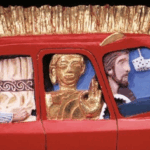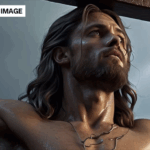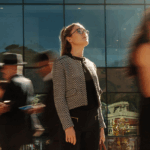Articles in this month’s magazine focusing on disability, race and inclusion have parallel and often intersecting themes.
Lyndal Iron’s feature on disability refers to journeying with people as part of our church communities.
Hans Reinders, author of Receiving the Gift of Friendship: Profound Disability, Theological Anthropology, and Ethics (Eerdmans, $49.95) and editor of The Paradox of Disability (Eerdmans, $22.95), tells of people who share their lives with the disabled in the community of L’Arche. Their stories confirm how the people with intellectual disabilities become their teachers in trusting God.
Reinders questions our moral culture and argues that how we see a disabled human being depends on how we understand our own being as humans.
In the Paradox (Responses to Jean Vanier and L’Arche Communities from Theology and the Sciences) he notes Vanier’s explanation that there is no way of doing something for other people if you don’t first learn how to receive whatever gift they have to offer; which presupposes your willingness to accept that you also are a person in need.
Reinders says a truly human community is not only about unity and wholeness; it is also about learning to live with difference and limitation.
Once we understand this we can learn to see that claims to unity and wholeness are really impositions by means of which particularised perspectives usurp the world of human experience and blind us to the variety of what there is to see.
Compare this with Black theologian Anthony Reddie’s argument that generic universalism supports privilege and a sense of superiority. He pursues a theology shaped by human encounter with context and difference.
Reinders also speaks of understanding lives that are way beyond the range of ordinary experience but he sees a need to go beyond liberation and the recognition of agency. He says the truth about human beings is grounded in God’s unconditional acceptance and that rights and justice claims only go so far.
Disabled people are human beings before they are citizens. To live a human life they must not merely be included in our institutions and have access to our public spaces. They must also be included in other people’s lives; not only by natural, familial necessity but also by choice.
Another author with L’Arche connections, Brett Webb-Mitchell (Beyond Accessibility, Church Publishing, $29.95), says that, by moving beyond mere accessibility, genuine inclusion will acknowledge what people with disabilities can offer and teach the church about prayer, service, understanding, love, justice and hospitality.
William Gaventa, in his Paradox paper “Learning from People with Disabilities: Asking the Right Questions”, says, “For relationships and opportunities for participation and connection to happen, people with developmental disabilities belong as close to the community as possible, in systems of support that can sustain individual relationships and connection and spark new ones by more opportunities for connection and relationship.
“They belong in our neighbourhoods, at our congregational worship services, and in community celebrations.”
Unless they have the opportunity to participate, people with disabilities will remain a class of people rather than becoming individuals with unique interests, gifts and needs, individuals whom others find themselves drawn to because of something that is stirred within them.
Blessed are you who walk with us in public spaces and ignore the stare of strangers, for we find havens of relaxation in your companionship.
Stephen Webb











